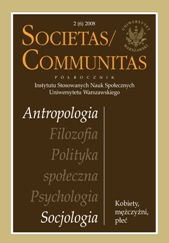

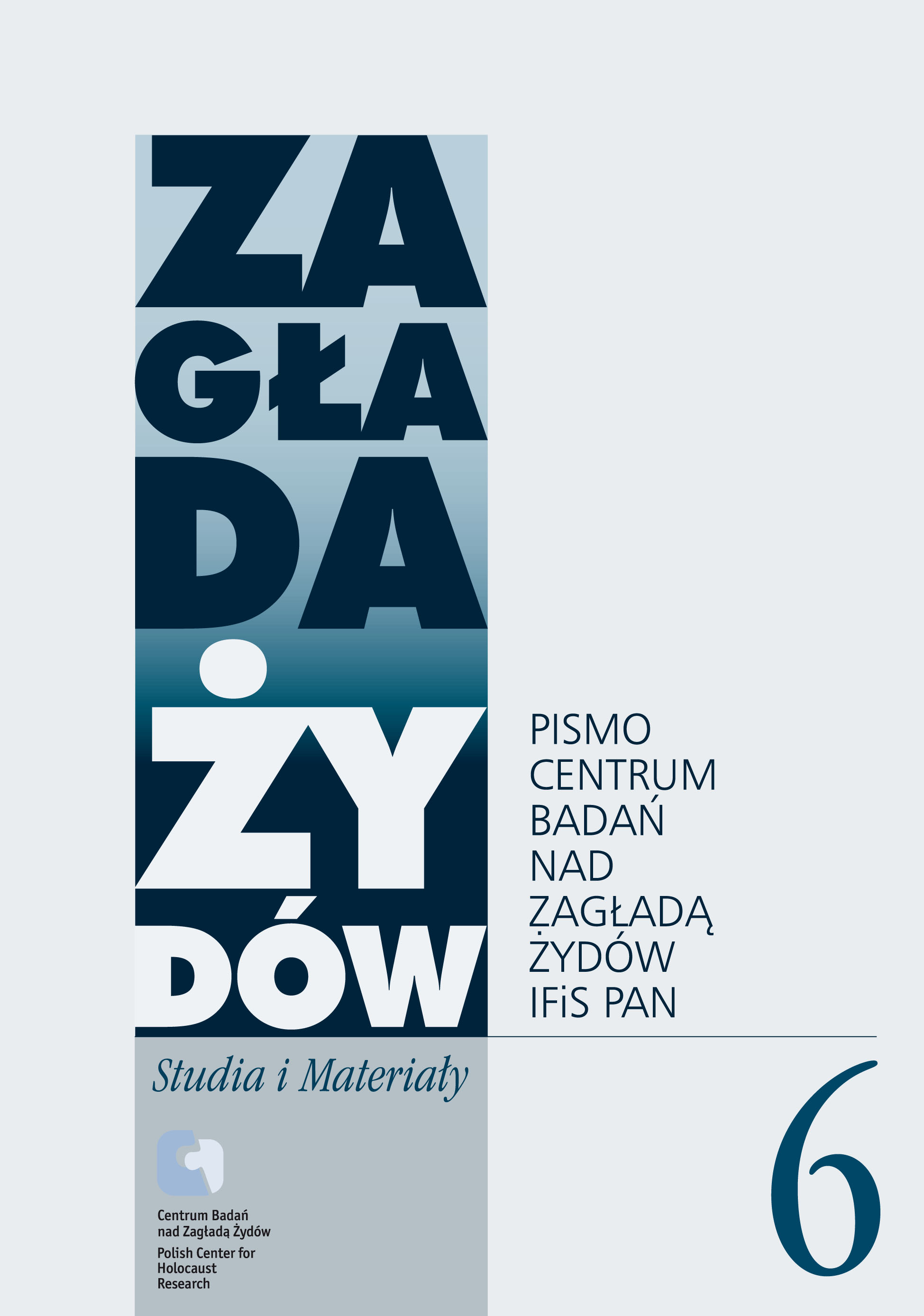
Primo Levi, Rozejm, przeł. Krzysztof Żaboklicki, Wydawnictwo Literackie, Kraków 2009 Zrozumieć Zagładę. Społeczna psychologia Holokaustu, red. Leonard S. Newman, Ralph Erber, tłum. M. Budziszewska, A. Czarna, E. Dryll, A. Wójcik, PWN, Warszawa 2009 Emunah Nachmany Gafny, Dividing Hearts: The Removal of Jewish Children from Gentile Families in Poland in the Immediate Post-Holocaust Years, Yad Vashem, Jerusalem 2009 Daniel Mendelsohn, Zagubieni. W poszukiwaniu sześciorga spośród sześciu milionów, przeł. Piotr Szymor, Wydawnictwo Czarne, Wołowiec 2008 Barbara Engelking, Dariusz Libionka, Żydzi w powstańczej Warszawie, Stowarzyszenie Centrum Badań nad Zagładą Żydów, Warszawa 2009 Andrzej Bart, Fabryka muchołapek, Wydawnictwo W.A.B., Warszawa 2010 Shlomo Venezia, Sonderkommando. W piekle komór gazowych, przeł. Krystyna Szeżyńska-Maćkowiak, Prószyński i S-ka, przy współpracy z Państwowym Muzeum Auschwitz-Birkenau, Warszawa 2009 Marcin Urynowicz, Adam Czerniaków 1880–1942. Prezes getta warszawskiego, Instytut Pamięci Narodowej, Warszawa 2009 Zagłada Żydów na polskich terenach wcielonych do Rzeszy, red. Aleksandra Namysło, Instytut Pamięci Narodowej, Warszawa 2008 Kronika getta łódzkiego /Litzmannstadt Getto, oprac. Julian Baranowski, Krystyna Radziszewska, Adam Sitarek, Michał Trębacz, Jacek Walicki, Ewa Wiatr, Piotr Zawilski, Archiwum Państwowe w Łodzi, Wydawnictwo Uniwersytetu Łódzkiego, Łódź 2009, t. 1–5 Die Commerzbank und die Juden 1933–1945, red. Ludolf Herbst, Thomas Weihe, C.H. Beck, München 2004 Tam był kiedyś mój dom… Księgi pamięci gmin żydowskich, wybór, opracowanie i przedmowa: Monika Adamczyk-Garbowska, Adam Kopciowski, Andrzej Trzciński, Wydawnictwo Uniwersytetu Marii Curie-Skłodowskiej, Lublin 2009 Die Verfolgung und Ermordung der europäischen Juden durch das nationalsozialistische Deutschland 1933–1945 [Prześladowanie i wymordowanie europejskich Żydów przez narodowosocjalistyczne Niemcy, 1933–1945], red. Götz Aly, Wolf Gruner, Susanne Heim, Ulrich Herbert, Hans-Dieter Kreikamp, Horst Möller, Dieter Pohl, Hartmut Weber, t. 1: Deutsches Reich 1933–1937 [Rzesza Niemiecka 1933–1937], oprac. Wolf Gruner, Oldenbourg Wissenschaftsverlag, München 2008; t. 2: Deutsches Reich 1938 – August 1939 [Rzesza Niemiecka 1938 – sierpień 1939], oprac. Susanne Heim, Oldenbourg Wissenschaftsverlag, München 2009 Besatzung, Kollaboration, Holocaust. Neue Studien zur Verfolgung und Ermordung der europäischen Juden [Okupacja, kolaboracja, Holokaust. Nowe studia na temat prześladowań i wymordowania Żydów europejskich], red. Johannes Hürter, Jürgen Zaruski, München 2008 (Schriftenreihe der Viertelsjahrhefte für Zeitgeschichte, t. 97), s. 210 Idith Zertal, Naród i śmierć. Zagłada w dyskursie i polityce Izraela, przeł. Jan Maria Kłoczowski, Universitas, Kraków 2010 Pinkes Szczekocin. Księga Pamięci Szczekocin (Życie i zagłada żydowskiego miasteczka), red. Isroel Szwajcer (Ben-Awrom)
More...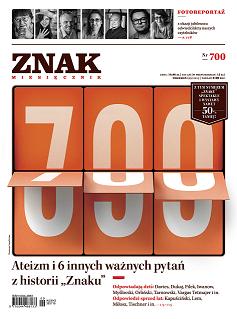
Keywords: Jan A. Kłoczowski; Maria Makuch; Łukasz Tischner; Janusz Poniewierski; Józefa Hennelowa; Wojciech Bonowicz; Jerzy Illg; Marzena Zdanowska;
More...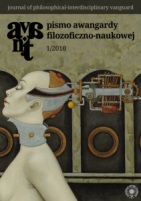
Project Avant was originally initiated by students, yet it is currently realized with the help of both PhD students and young academics. This feature of the project (one may call it “the freshness“) is an especially important part of the entire idea. Our project is under supervision of the Institute of Philosophy in the Department of Humanities of Nicolaus Copernicus University in Torun, Poland (hereafter: NCU) and the Academic Association of the Philosophical- Interdisciplinary Vanguard as the organizational base. The work on the project relies on the professional help of people interested in the ideas. If we are going to point out the main (yet still evolving) aims of the project, we ought to mention the following: promoting both dialogue between contemporary philosophy and the sciences & art and international cooperation between young researchers… To make a long story short: we are young, seeking and interdisciplinary.
More...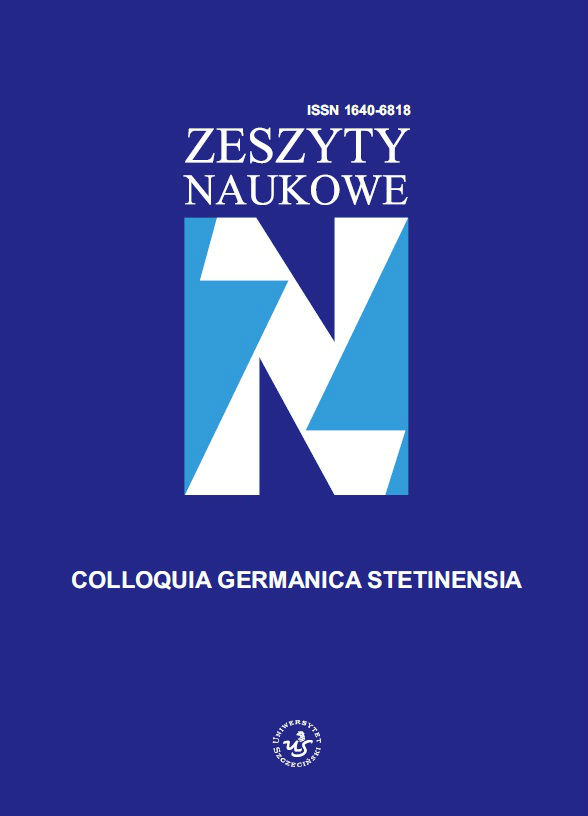
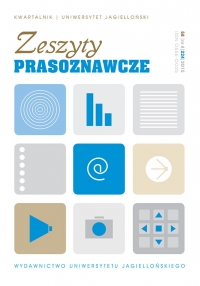
Keywords: scientific journal; content; media studies; press; Poland; Zeszyty Prasoznawcze;
The subject of this article is the content of a quarterly Zeszyty Prasoznawcze issued by the Press Research Centre of Jagiellonian University. The author analyzed 42 publications covering approximately 8,500 pages of print. He paid attention to the editorial staff lineup, team of authors and, above all, subject matter of the articles. Altogether, 1068 pieces (389 scientific articles, 114 scientific materials, 413 reviews and 152 reports) were subjected to the analysis. The content of Zeszyty Prasoznawcze was dominated by authors from Cracow, mostly connected to the Press Research Centre of Jagiellonian University. The periodical, not avoiding international subject matter, mainly focused on researching classic printed press in Poland. It played a beneficial role in initiating, registering and evaluating press studies research, relatively widely informed about most important publications in media studies. Editor in chief, who proved to be an unusually prolific author in Zeszyty Prasoznawcze, had a significant influence on its content.
More...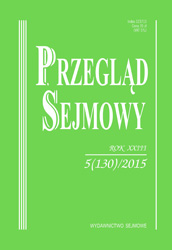
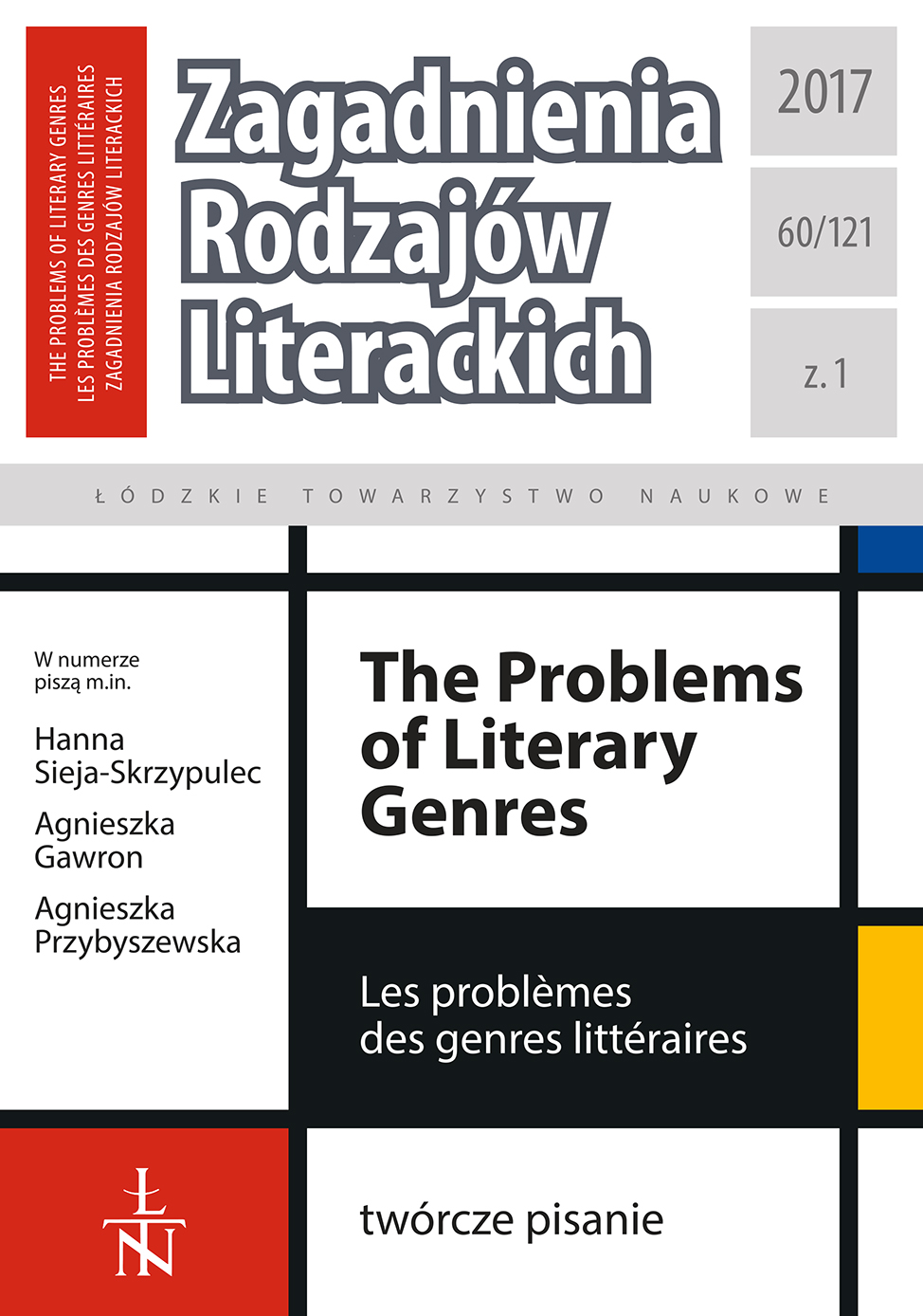
-
More...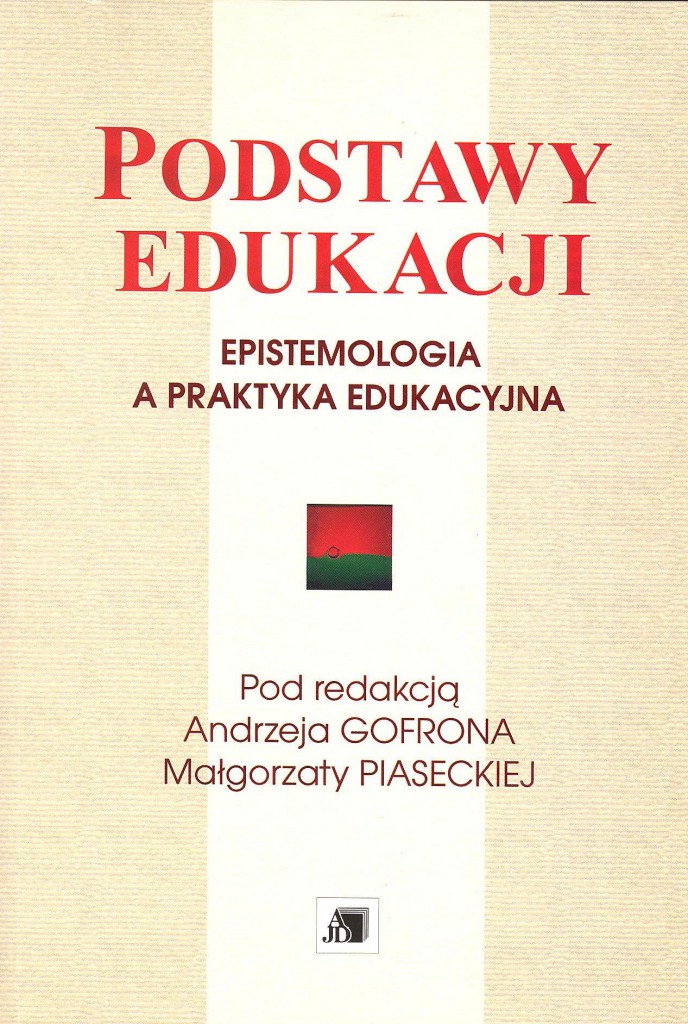
W zakresie badań nad edukacją nie ma jednej wyczerpującej teorii i, jak twierdził Max Weber, nie należy się jej spodziewać, ponieważ zarówno przedmiot poznania, jak i podmiot poznający są historycznie zmienne. Przekonanie o zmiennym, złożonym i u podstaw sprzecznym charakterze świata społecznego prowadzi do akceptacji wielości i różnorodności stanowisk teoretycznych oraz projektów pedagogicznych. Wzrasta też znaczenie kategorii „różnicy” jako jednej z ważnych podstaw badania i działania pedagogicznego. W perspektywie postmodernistycznej nie istnieje już ten arbitralny punkt wyjścia, jakim było w przeszłości przeświadczenie o homogenicznej rzeczywistości i żyjących w niej populacjach. Świat jest różny i ludzie w nim żyjący są różni. Odmienność nie jest już grzechem, lecz wyrazem bogactwa społeczeństwa, więc różnice powinny być kultywowane, a nie represjonowane.
More...![Zygmunt Zieliński, Demokracja z każdej strony (ludzie, sprawy i zdarzenia) [Democracy on Each Side (People, Matters and Events)], Toruń: Adam Marszałek Publishing House 2017](/api/image/getissuecoverimage?id=picture_2017_36909.jpg)
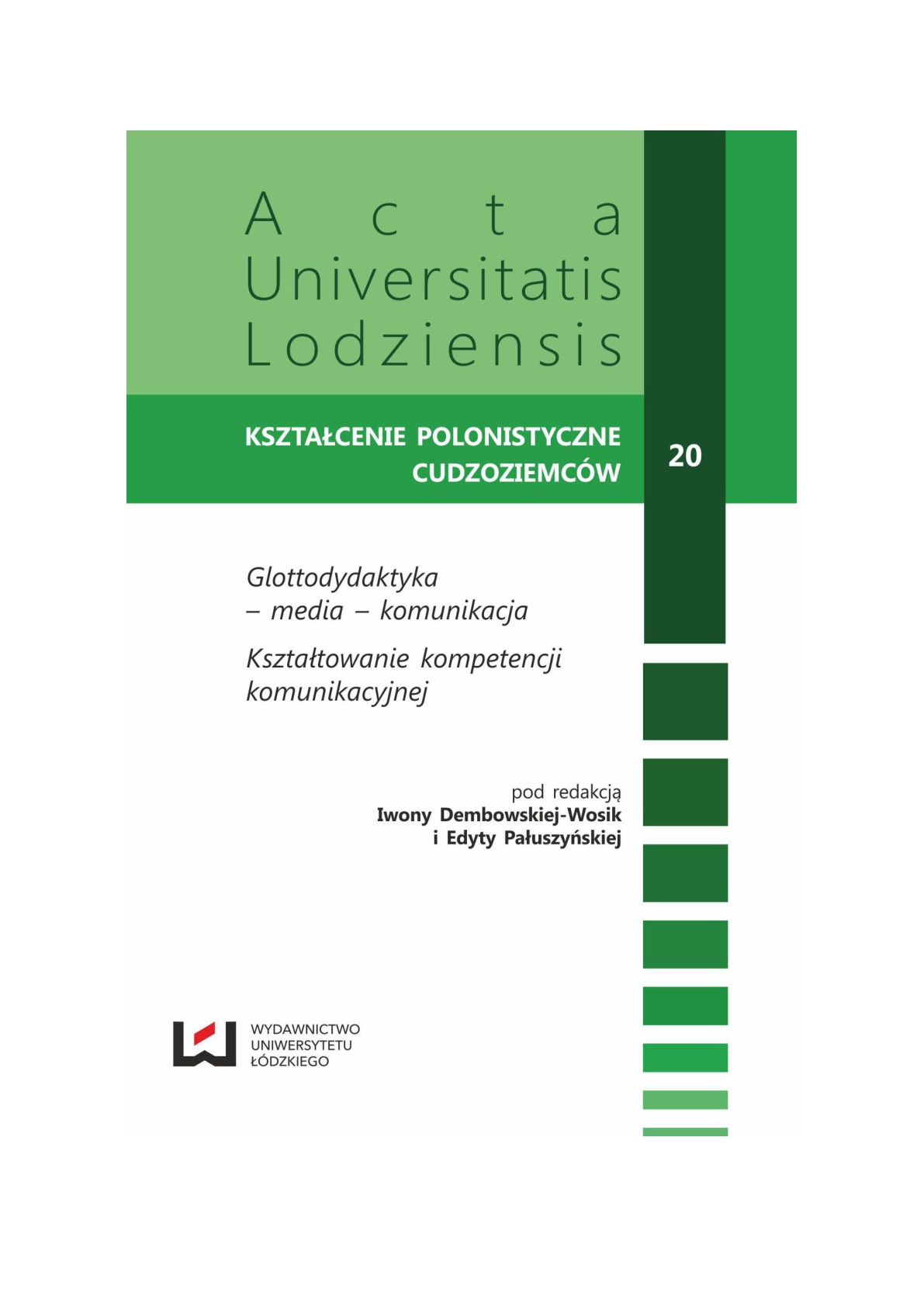
Keywords: reading; lexical competence; text work;
The author discusses the role of texts in developing reading and speaking skills. She uses criminal fiction as an exemplary text and suggests some exercises, which are meant to help develop the skill of reading, the lexical competence, and to increase vocabulary range.
More...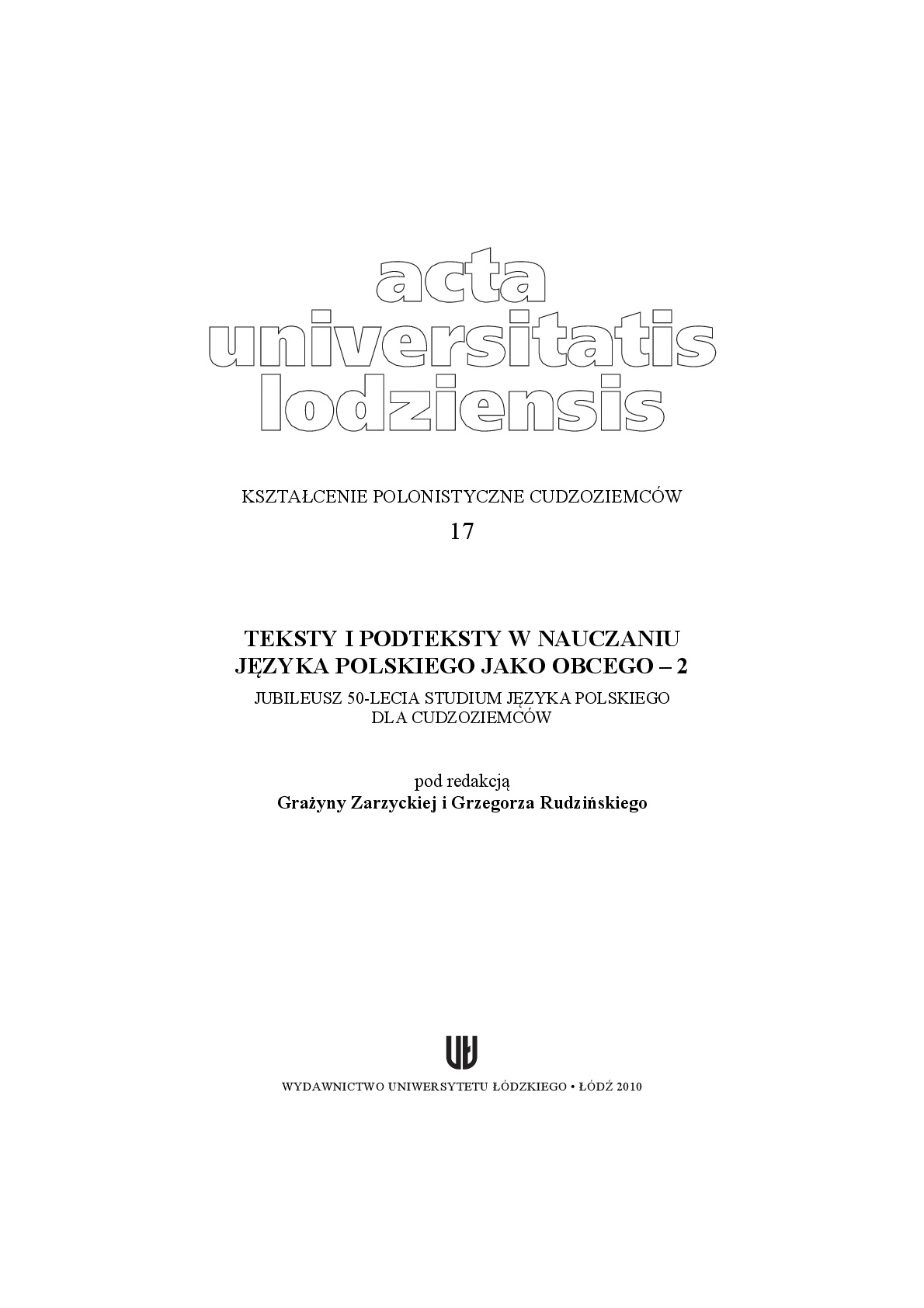
Keywords: Polish prose texts; Polish as a foreign language;
Bycie człowieka w świecie jest nierozerwalnie złączone z nawiązywaniem kontaktu z Drugim” (Cieszyńska 2006: 34). Cytat ten ukazuje sytuację osoby przybywającej do nowego nieznanego jej kraju. Obcokrajowiec, chcąc zaaklimatyzować się w otaczającej go rzeczywistości, poznać ją, nawiązać kontakt z tubylcami, musi poznać ich język – swoiste medium, które mu ten kontakt umożliwi. Narzędziem, dzięki któremu uczący się może zgłębić wiedzę o specyfice danego kraju są teksty literackie, a zwłaszcza literatura współczesna. Pełni ona funkcję przewodnika po obcej kulturze rozumianej bardzo szeroko jako tradycja, obyczajowość, sztuka oraz zjawiska z zakresu folkloru. Poznanie i aktywne uczestnictwo cudzoziemców w tak szeroko rozumianym życiu kulturalnym danego kraju jest zadaniem trudnym do wykonania. Nauczyciel języka obcego musi włożyć dużo wysiłku, by na lekcjach umożliwić studentowi „zanurzenie się” w nowej kulturze.
More...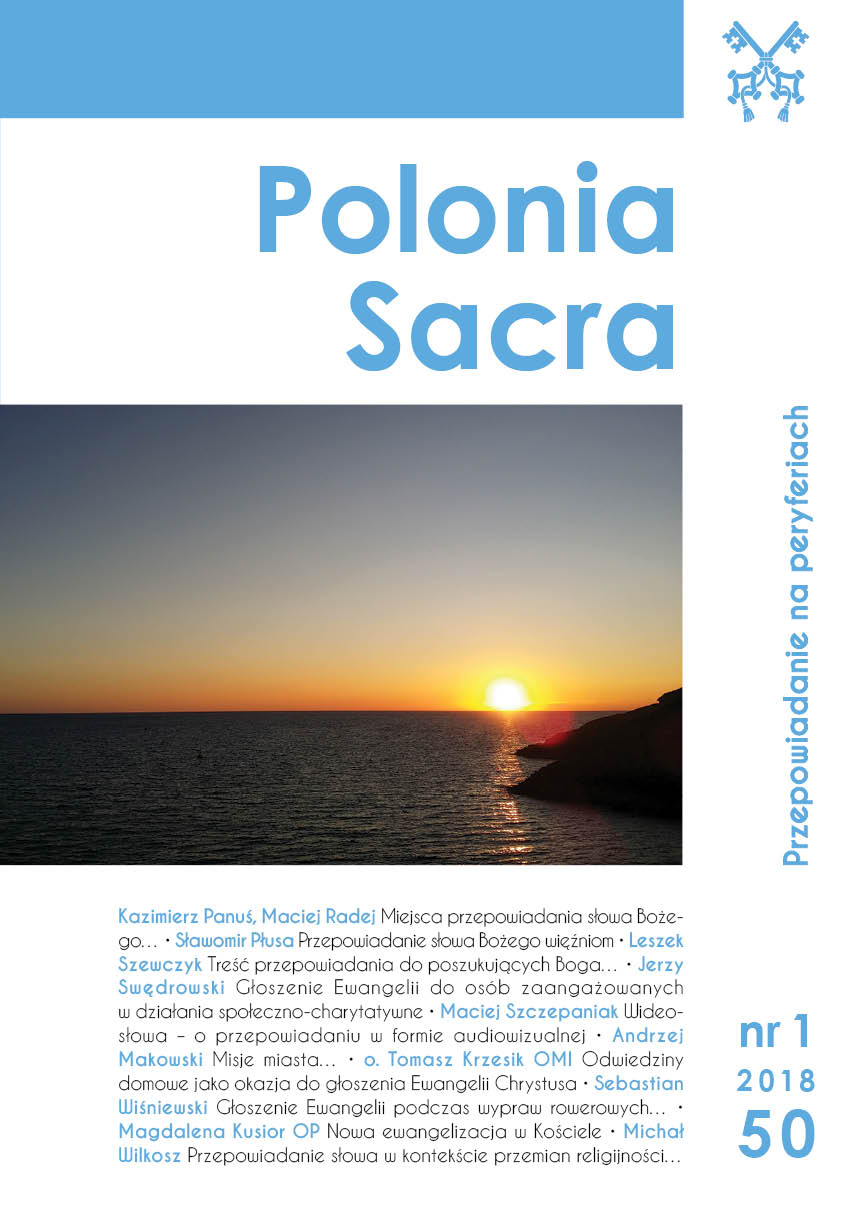
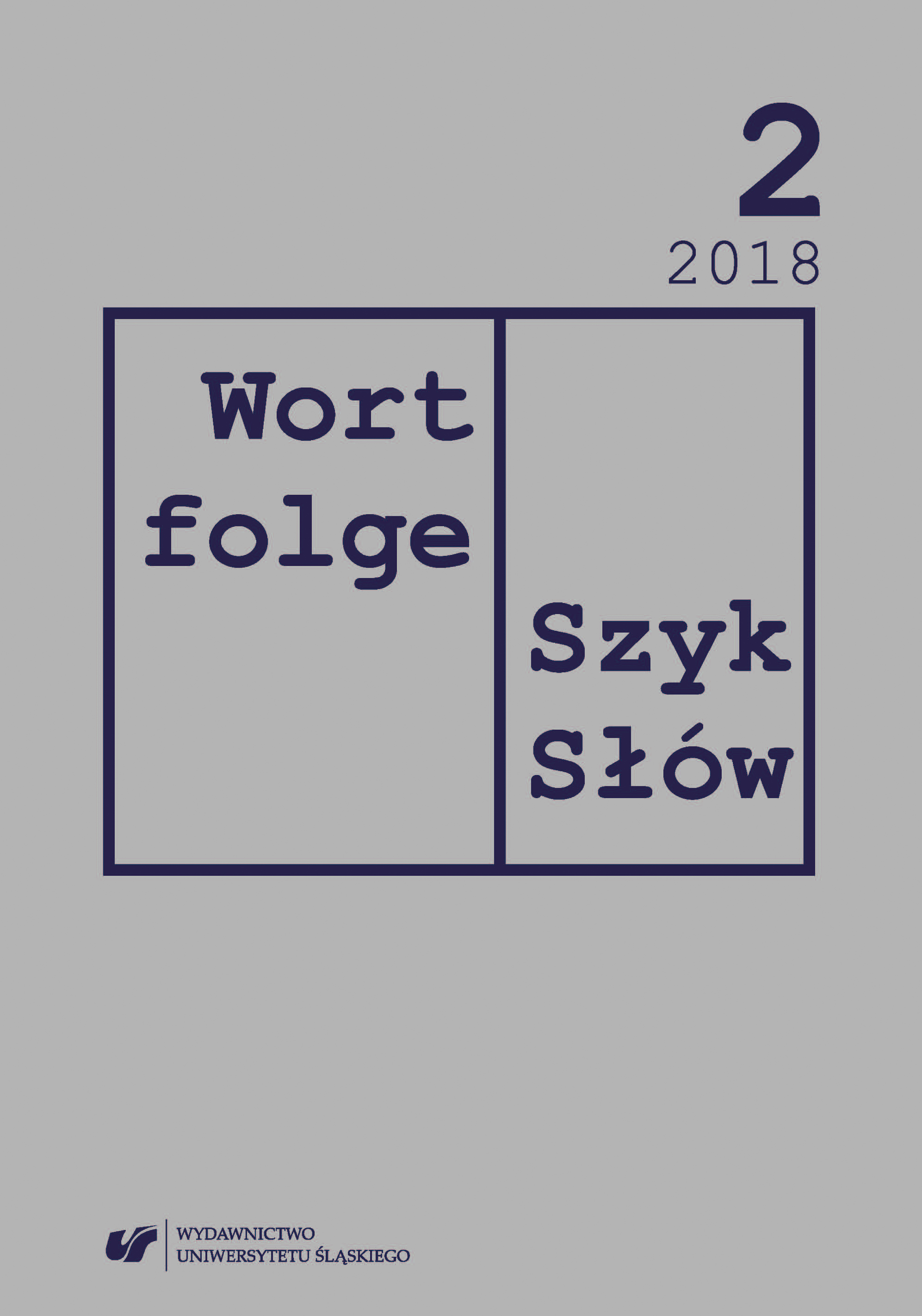
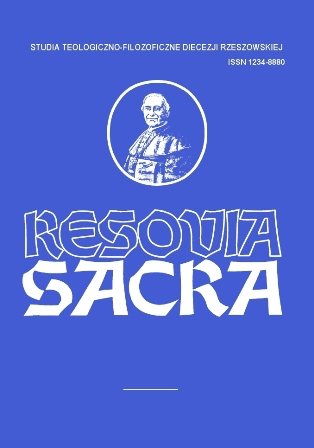
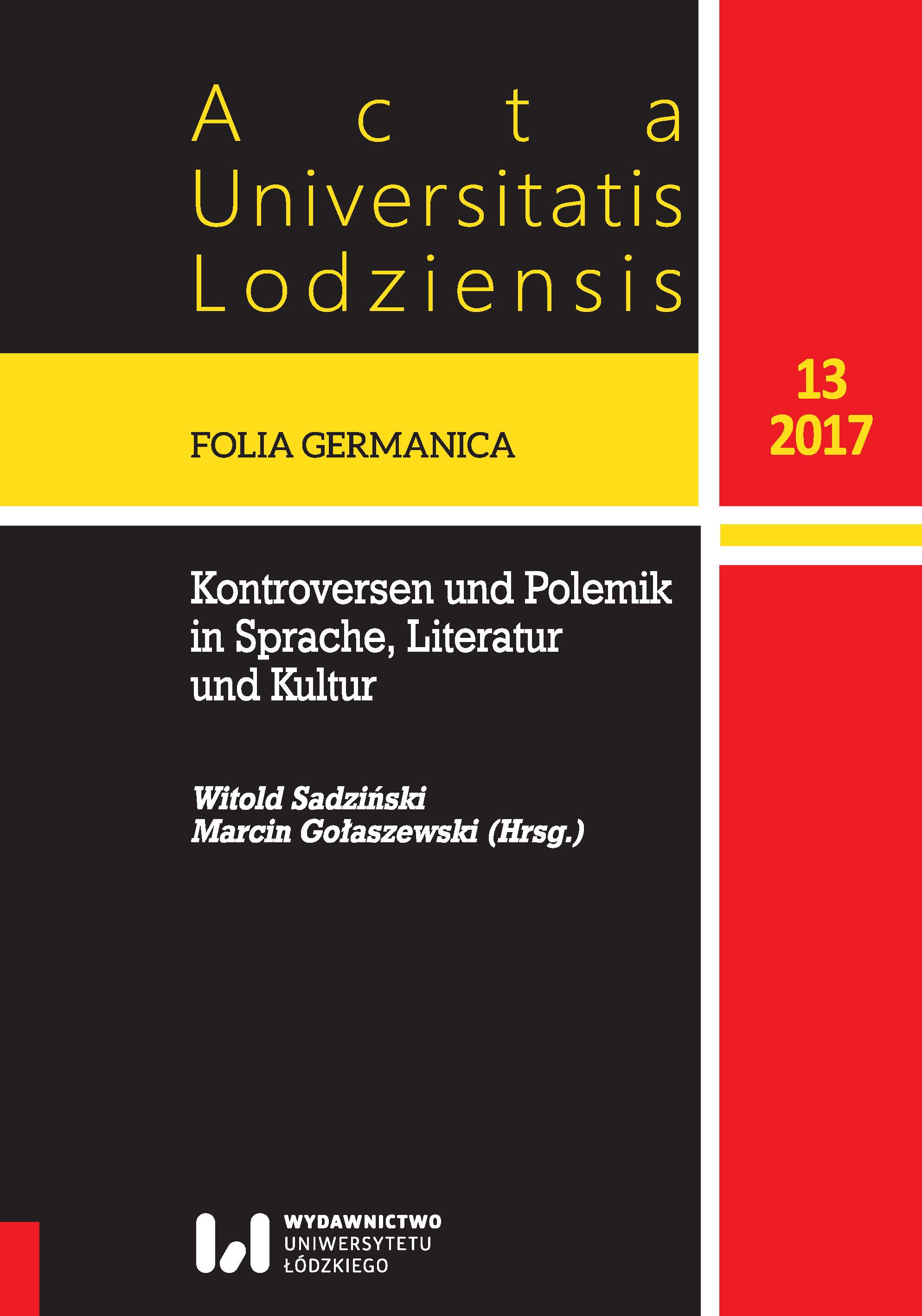
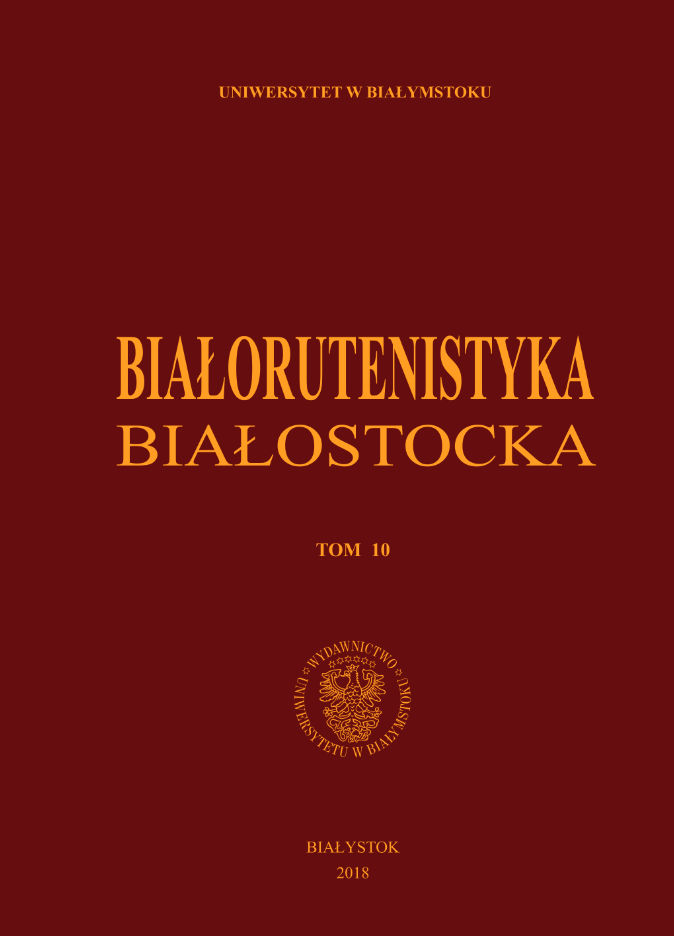
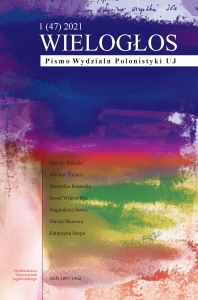
Keywords: Michel de Montaigne; Witold Gombrowicz; subject; text; experience
The article discusses intertextual, intellectual and poetological relations between Michel de Montaigne’s Essais and Witold Gombrowicz’s autobiographical project. The author shows that the Polish writer was inspired by the French classic’s open poet
More...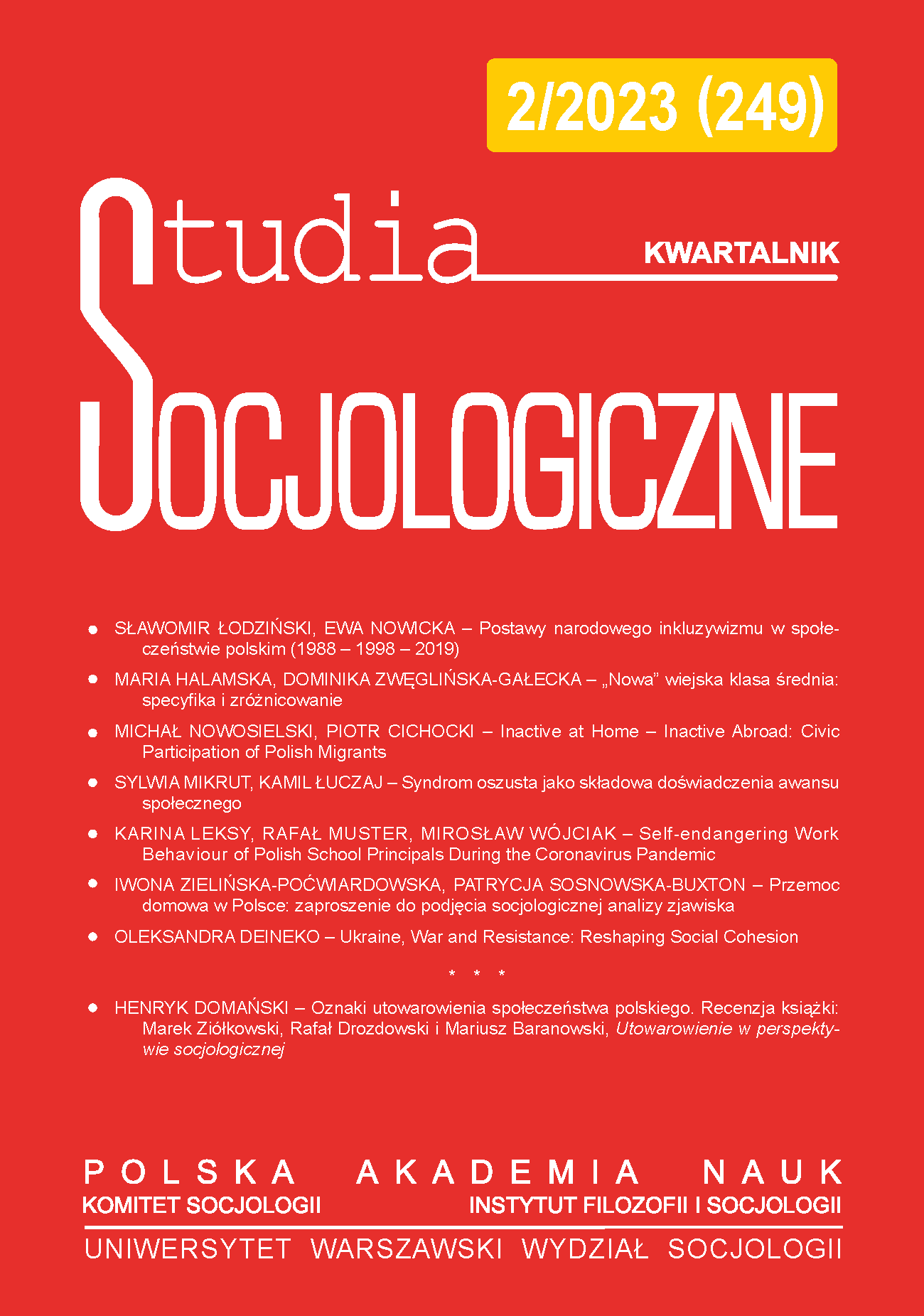
Keywords: higher education; upward mobility; social class; impostor syndrome; class cultures
Sociological and psychological studies conducted in various cultural contexts suggest that the change in social position is often associated with experiencing pain and suffering. The article analyzes individual experiences of upward mobility associated with the impostor syndrome. The authors explore how Polish academics from the working-class background experience this complex state of feeling intellectually fraudulent. The research material comprises a collection of 25 autobiographical narrative interviews (BNIM). The article identifies the manifestations of imposter syndrome and discusses the role of socialization in its development. It concludes with the suggestions of how to deal with its symptoms. The prevalence of this syndrome and the fragmentary nature of the available information related to it suggest an urgent need to explore the issue, which may play a significant role in interpreting qualitative empirical data associated with upward mobility.
More...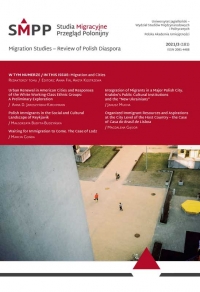
Keywords: concultural practices; intercultural openness theories; Ukrainians as migrants in Warsaw; urban inclusion policy
Institutional intercultural openness is a crucial part of urban inclusion policy towards migrants. In cities with a long history of social and cultural diversity such as Berlin, London or Amsterdam, intercultural openness provides migrants with full or partial participation, initiating activities in the metropolitan space, access to public resources, and social security. In Warsaw, a relatively new inflow of economic migrants from Ukraine, who constitute a large and heterogeneous group, has necessitated changes in municipal cultural and integration policies to facilitate the needs of the new group of recipients. In our article, we focus on results from 91 interviews with Ukrainian students living in Warsaw conducted between 2019 and 2020. We analyse whether, how and why young immigrants from Ukraine use the offer of Warsaw’s cultural institutions; what their expectations are and how their cultural participation is connected with their acculturation and integration. Our research shows that despite the fact that Warsaw tends to build up its culturally open policy for diverse participants, it is not adjusted to the needs of young Ukrainians. As a result, this new diaspora begins to create its own conculture (not to be confused with counterculture). We understand this phenomenon as a set of cultural practices initiated by a minority group of migrants in their new place of residence, which result from the national cultural script of this group. Through these practices, this group cultivates the community, without any connection to the dominant (national) culture of the wider society they belong to or in the space of which its members live. On the one hand, the diversification of a municipal cultural offer allows migrants to find their preferred places and events within Polish culture, although on the other hand, it creates a space for the development of concultural practices that can lead to ghettoisation.
More...